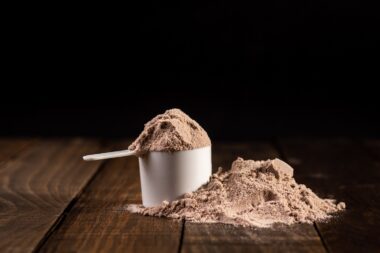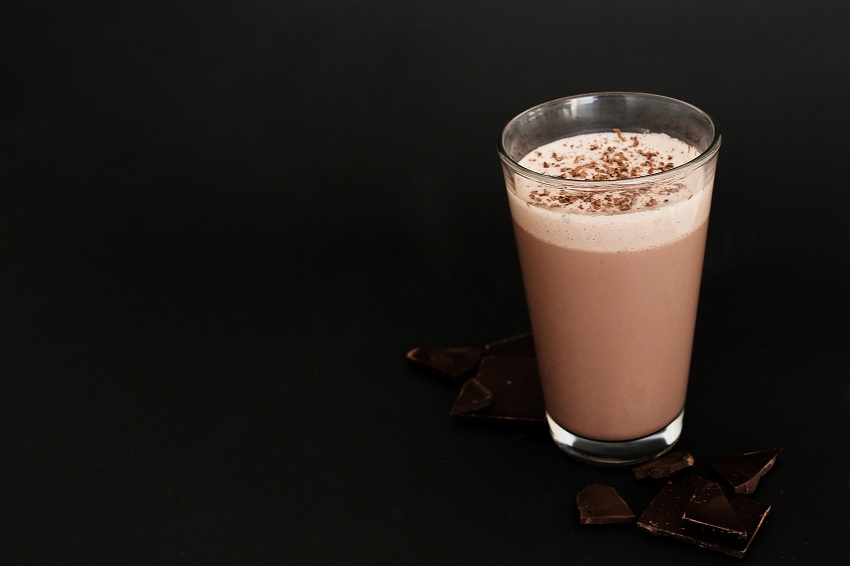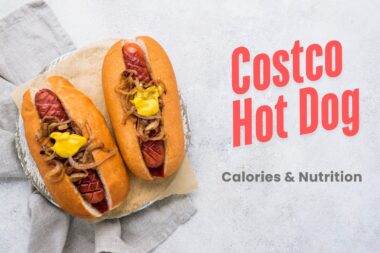Increasingly, people are turning to meal replacement shakes to get their daily nutrition.
Some people are hoping to lose weight or build up muscle; while others appreciate not having to interrupt their work to cook and eat a full meal while getting most of the nutrients the body needs. Meal replacement shakes are convenient and provide the proteins, carbs, and vitamins needed to fuel your body.
In some cases, meal replacement shakes can cut down on your household grocery bill. Whatever your reasons, we have brought to you the best available brands in 2020.
But before we begin, let’s get a few things straight. When deciding if meal replacement shakes are right for you and if so, which brand, you have to keep a couple of health tips in mind.
Everyone is Different
While the FDA recommends, on average, 2,000 calories a day, that number isn’t universal. Depending on your age, sex, activity level, current weight, and any weight-related health goals, your own calorie needs might range from 1,400 to 3,000 per day.
Understanding what the FDA recommends and what you personally need is important when parsing out the information on a nutritional label. A serving size might be smaller or larger for you, or you may want to eat more protein or less fat than the normal recommendations. That being said, meal replacement shakes are a good option for people wanting to carefully monitor their calorie intake.
Furthermore, many meal replacement shakes, especially vegan- or vegetarian-friendly options, incorporate soy, wheat, hemp, and other proteins. While these proteins offer a complete nutritional profile, they can provoke an allergic reaction. If you have known food allergies, carefully read each label to ensure you’re not eating something harmful.
Consult a Doctor
Speak with your doctor before making any dramatic lifestyle changes. For instance, if you have diabetes or are pre-diabetic, some meal replacement options may have too much sugar for your body to handle.
If you have a preference for a specific diet, such as vegetarian, vegan, or ketogenic, consider also speaking with a nutritionist. They can advise you on how best to utilize meal replacement shakes while meeting your nutritional needs.
With that in mind, here are some of the best meal replacement shakes currently on the market.
Best Meal Replacement Shakes
SlimFast
SlimFast markets its products for those looking to lose weight primarily through reducing calorie intake. The company has devised the SlimFast Plan to this end, suggesting dieters replace two meals a day with SlimFast (together with one sensible meal and three healthy snacks). Vanderbilt University conducted a study that indicates the SlimFast Plan works to help people both lose weight and keep it off long-term.
Another benefit of SlimFast is accessibility – SlimFast can be found in most grocery stores and offers products to help people with diabetes, or those who prefer the ‘keto’ diet, lose weight. However, not every SlimFast product is vegetarian or vegan friendly; read each label carefully if you follow those diets.
Soylent
Soylent made a splash several years ago when it became the subject of a successfully-funded Kickstarter. It markets itself as a convenient alternative to eating a full meal and boasts a complete nutritional profile that balances protein, fat, and carbohydrates with daily required vitamins and minerals.
One benefit of Soylent is how inexpensive it is. One bottle of Soylent costs $3.50, while a shake made with the powder only costs $1.82 per meal.
Soylent is a new product, so has been less-studied than other meal replacement shakes. However, there’s some evidence that Soylent increases the presence of beneficial gut bacteria, and that it helps head and neck cancer patients (who often have trouble chewing or swallowing) avoid feeding tubes. Soylent markets itself as a complete alternative to eating, and though some bloggers have done self-experiments by adopting a Soylent-only diet for thirty days (or longer), there are currently no long-term clinical studies on the benefits or drawbacks of adopting such a diet.
Soylent does have a few minor, practical drawbacks, however. Since it is soy-based, people with soy allergies should avoid it. It’s difficult to find in brick-and-mortar stores, which means you’ll have to order it online (and thus pay shipping costs). And on a minor note, Soylent doesn’t come in very many flavors (though some Soylent fans are devising their own recipes).
Huel
A newcomer to the meal replacement shake market, Huel (short for ‘human fuel’) is primarily a Soylent competitor. Huel also markets itself as a vegan-friendly, nutritionally-complete alternative to solid food. Rather than use soy, Huel relies on pea protein, together with rice, flaxseed, oats, and coconuts – making it more accessible to people with allergies. It also has a slightly heavier caloric load – one serving of Huel is 500 calories, as opposed to Soylent’s 400.
As Huel is a much newer product, fewer studies have been conducted on its health effects; though health bloggers are doing their own self-experimentation. Bodybuilders in particular favor Huel as the best all-around meal replacement shake.
Huel is cost-efficient; a serving costs about $2.50 if using the powder. However, it’s not sold in grocery stores. A few vitamin chains, such as GNC, carry Huel. But you’ll probably have to order directly from the online store, and there aren’t many flavors to choose from.
Ample K
A ketogenic, or ‘keto,’ diet has minimal carbohydrate intake, with most calories coming from fat and protein, and has been shown to help people lose weight.
Because a keto diet usually calls for around 10% of a person’s calories to come from carbohydrates, many meal replacement shake options aren’t keto-friendly. This is where Ample K comes in; which has been specifically designed to have only 3 grams of carbs per 400-calorie serving, and thus is an attractive option for people pursuing a keto diet.
Ample K itself has not been studied, but check the previous links to see discussions on the benefits of a ketogenic diet. It’s not widely available, even at nutritional supplement stores, so you should plan to purchase your Ample K through a subscription plan on their website. It’s also slightly pricier than some other options; a serving of Ample K costs between $4.76 and $6.80. It currently also has only one flavor. The website suggests mixing Ample K powder with your favorite milk; though that will adjust the calorie and nutrient profile.
310
310 Nutrition is a newer brand that is aimed at helping people with a range of goals in mind. Note: If you are currently diagnosed with diabetes, or pre-diabetic, please speak with your doctor before adopting a meal-replacement strategy.
310 is quite inexpensive, with a meal costing around $1.82. It also has a very low caloric load, as one serving contains only 90 calories. 310 offers a wide variety of flavors, including organic powders, lemonade mixes, and teas. This brand is also slightly more accessible, as it’s sold both online and through stores like Wal-Mart and Target.
About The Author – Belinda Wolf
I’m a food nerd with a vested interest in nutrition. The human body is a wonderfully complex machine, and it’s worth knowing what makes it go (and what will slow it down). I love learning new things about food, diet, and nutrition – and sharing what I’ve learned with others.
Image Credit: Freepik
This article is published by our independent team of health and wellness pundits that publish original and informative content to empower readers to take charge of their health and embark on a physically, mentally, and emotionally balanced lifestyle.





































